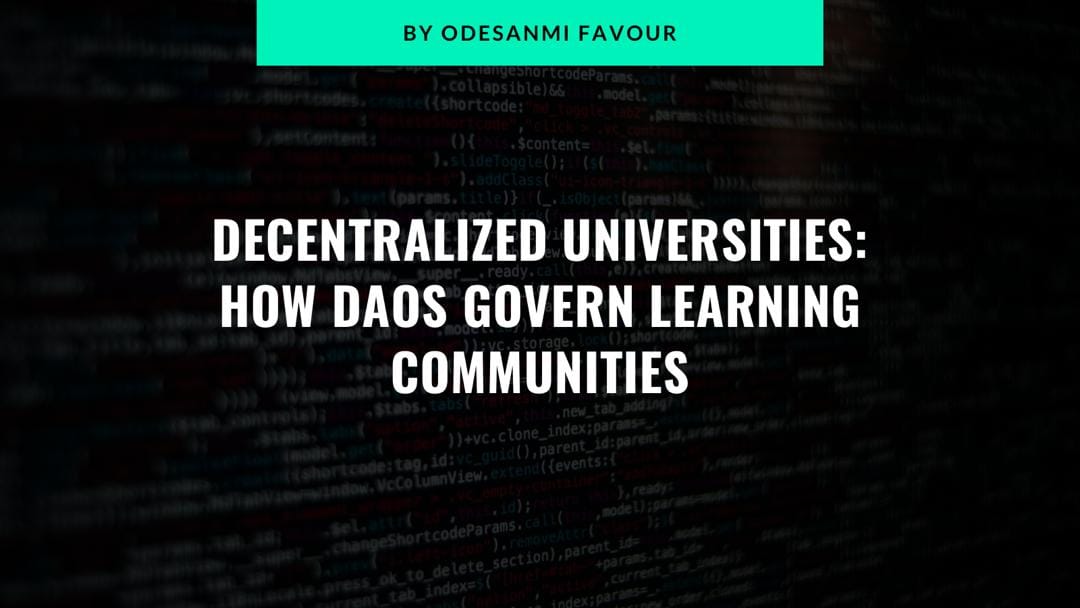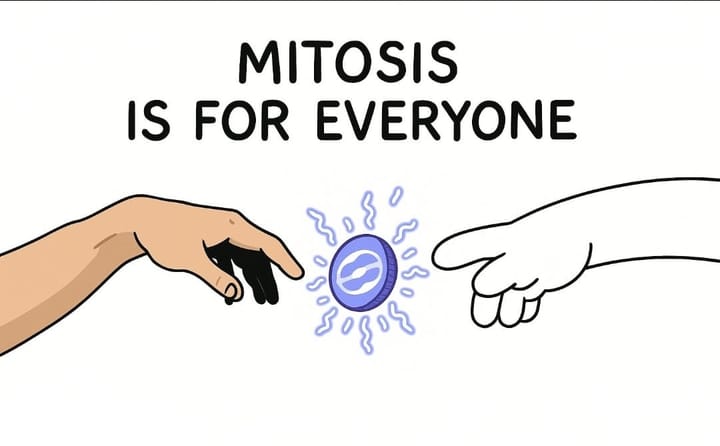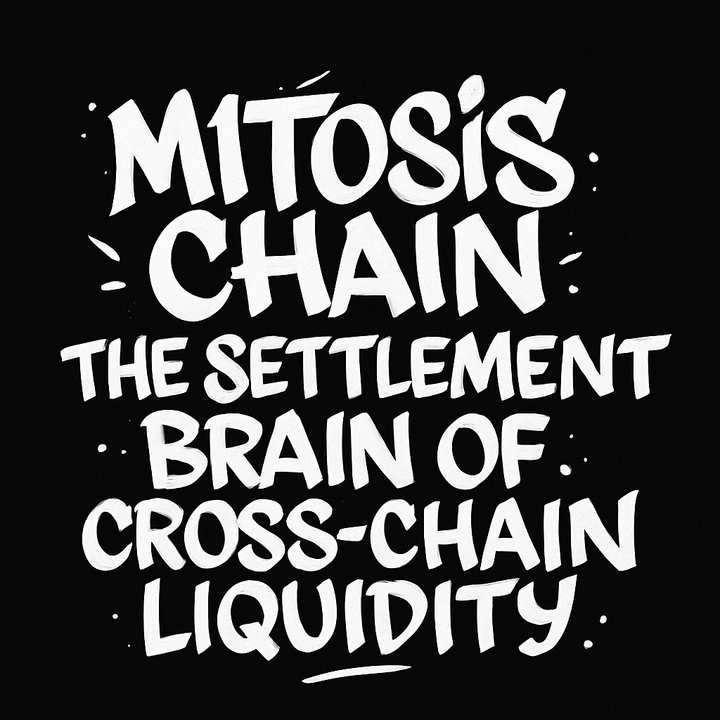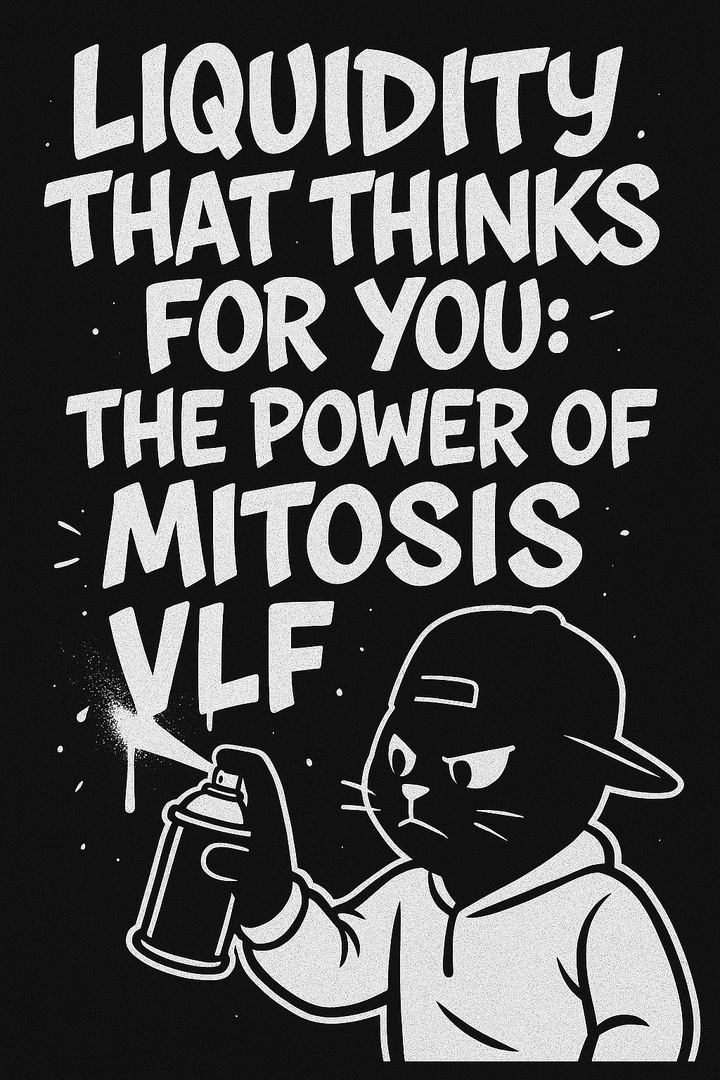Decentralized Universities: How DAOs Govern Learning Communities

Introduction
In 2025, Decentralized Autonomous Organizations (DAOs) are redefining education by creating decentralized universities—learning communities governed by blockchain-based systems that empower students, educators, and stakeholders to collaboratively shape curricula, credentials, and resources. Unlike traditional universities with centralized hierarchies, these DAOs leverage smart contracts and governance tokens to ensure transparency, inclusivity, and adaptability. By decentralizing decision-making, they address issues like high tuition costs, geographic barriers, and outdated educational models, fostering global, community-driven learning ecosystems. This article explores how DAOs govern decentralized universities, highlighting their operational mechanisms, real-world examples, and the challenges they face in transforming education.
In this article, we would explore:
1. The Mechanics of DAO Governance in Decentralized Universities
2.Case Studies of DAOs Powering Learning Communities in 2025
3. Challenges and Future Prospects for Decentralized Universities
The Mechanics of DAO Governance in Decentralized Universities
Decentralized universities operate as DAOs, using blockchain technology to create self-governing learning communities where stakeholders—students, educators, and even employers—collectively manage educational processes. This governance model relies on smart contracts, tokenized incentives, and transparent decision-making, fundamentally rethinking how education is structured and delivered.
How DAO Governance Works
DAO-governed universities function through:
- Smart Contracts: These self-executing contracts on blockchains like Ethereum or The Open Network (TON) automate processes such as course creation, credential issuance, and funding allocation. For example, a smart contract might release funds to an educator once their course receives 70% community approval.
- Governance Tokens: Participants acquire or earn tokens (e.g., $LEARN or $EDU) to vote on key decisions, such as curriculum updates or budget priorities. Tokens may also grant financial rewards, aligning incentives with community goals.
- Decentralized Platforms: Courses, credentials, and community interactions occur on blockchain platforms, ensuring transparency and immutability. Credentials are often issued as NFTs, stored in digital wallets, and verifiable globally.
- Community-Driven Decision-Making: Stakeholders propose and vote on initiatives, from new courses to partnerships with employers. Quadratic voting or weighted token systems ensure fair representation, preventing dominance by large token holders.
For Example: A Decentralized University Workflow
Imagine a decentralized university DAO, LearnSphere, operating on Ethereum. A student, Maria, earns $LEARN tokens by completing a blockchain development course and contributing a tutorial. She uses her tokens to vote for adding an AI ethics course to the curriculum. Educators submit course proposals via a smart contract, and the community approves funding for top-rated content. Upon course completion, Maria receives an NFT credential, recognized by a Web3 startup where she applies for a job. This process ensures transparency, as all votes and transactions are recorded on-chain, and empowers Maria to shape her learning environment.
Why It Matters
Traditional universities often face criticism for high costs—U.S. tuition averages $38,000 annually—and rigid curricula that lag behind industry needs. DAOs address these by enabling low-cost, global access (e.g., courses for $50 vs. $5,000) and rapid curriculum updates driven by community input. Blockchain’s transparency reduces administrative overhead, with platforms like Open Source University reporting 80% lower operational costs than traditional models, per 2025 OECD education trends.
Case Studies of DAOs Powering Learning Communities in 2025
Several DAOs are pioneering decentralized universities in 2025, demonstrating how community governance can transform education. These case studies highlight diverse approaches to delivering learning, issuing credentials, and fostering global collaboration.
Case Study 1: BitDegree DAO – Skills-Based Learning for Web3
Overview: BitDegree, a blockchain-based education platform, evolved into a DAO in 2023, focusing on tech skills like blockchain, AI, and cybersecurity. By 2025, it serves 20,000 learners across 100 countries, with $BDG tokens governing course development and partnerships.
- Mechanics: Learners and educators stake $BDG to propose or vote on courses, with smart contracts allocating 70% of course revenue to creators. In 2025, BitDegree launched a “Web3 Developer Bootcamp,” co-designed with industry partners like ConsenSys, accessible for $100 via mobile apps. NFT credentials verify skills, accepted by 300+ tech firms.
- Impact: BitDegree has trained 8,000 developers, with 60% from emerging markets like India and Nigeria. For example, a Nigerian student, Ade, completed a smart contract course, earned an NFT credential, and secured a remote job, bypassing traditional degree barriers.
- Example: Ade joined BitDegree in 2024, earning $BDG by mentoring peers. He voted to prioritize a DeFi course, which attracted 2,000 learners, and used his tokens to access advanced modules, showcasing how DAOs empower learners to shape curricula.
Case Study 2: UniDAO – Global Liberal Arts Education
Overview: UniDAO, launched in 2022, is a decentralized university offering liberal arts education, from philosophy to digital humanities, with 12,000 members in 2025. It emphasizes interdisciplinary learning for Web3 contexts.
- Mechanics: Members stake $UNI tokens to vote on course offerings and fund community projects, such as virtual reality (VR) seminars. Smart contracts distribute $1 million annually in grants, with 75% supporting student-led research. In 2025, UniDAO introduced a “Crypto Ethics” course, attended by 3,000 learners globally.
- Impact: UniDAO has issued 5,000 NFT credentials, recognized by NGOs and Web3 firms. A student in Brazil, Sofia, used her philosophy credential to join a DAO governance team, illustrating global recognition of decentralized credentials.
- Example: Sofia earned $UNI tokens by creating a course on blockchain governance, voted to fund a peer’s VR art project, and used her earnings to attend a global conference, highlighting DAOs’ role in fostering creative education.
Case Study 3: Odyssey DAO – Lifelong Learning for Professionals
Overview: Odyssey DAO targets professionals seeking upskilling, with 15,000 members in 2025. It partners with corporations to align courses with industry needs, focusing on AI, blockchain, and sustainability.
- Mechanics: Professionals purchase $ODY tokens to access premium courses or earn them by contributing content. Smart contracts automate micro-credential issuance, with 80% of revenue shared with educators. In 2025, Odyssey launched a “Sustainable Blockchain” course with IBM, training 4,000 professionals.
- Impact: Odyssey has upskilled 7,000 workers, with 50% securing promotions or new roles. For instance, a Kenyan engineer, James, earned an AI credential, landing a job at a tech startup, demonstrating DAOs’ ability to bridge skill gaps.
- Example: James joined Odyssey in 2024, earned $ODY by developing a sustainability module, and voted to fund a women-in-tech initiative, illustrating how DAOs empower professionals to influence learning priorities.
Challenges and Future Prospects for Decentralized Universities
While DAOs offer transformative potential for education, they face hurdles in scalability, regulation, and inclusivity. Overcoming these challenges will determine their ability to reshape global learning by 2030.
Challenges
- Regulatory Uncertainty: DAOs operate in a legal gray area, with regulators like the U.S. SEC questioning their compliance with securities laws. Education DAOs must navigate accreditation standards, as traditional institutions challenge the legitimacy of NFT credentials. For example, UniDAO faced scrutiny in 2024 when a European regulator questioned its credentialing process.
- Scalability and Accessibility: High blockchain transaction fees (e.g., Ethereum gas costs) and technical complexity can exclude non-tech-savvy users. BitDegree reported 15% of potential learners in rural areas dropped out due to wallet setup issues in 2024.
- Quality Assurance: Decentralized governance risks prioritizing popular but low-quality content. Aave DAO’s 2025 controversy over misallocated funds highlights how community voting can falter without robust checks.
- Digital Divide: With 93% of the global population lacking post-secondary education, per OECD data, DAOs must address internet access and device affordability to achieve inclusivity.
For Example: BitDegree’s Scalability Solution
In 2024, BitDegree faced accessibility issues when high Ethereum fees deterred 20% of African applicants. The DAO migrated to a layer-2 solution (Arbitrum), cutting fees by 85%, and partnered with mobile providers to offer low-cost data plans. By 2025, African enrollment rose 40%, but challenges remain in reaching offline communities, underscoring the need for hybrid solutions.
Future Prospects
By 2030, decentralized universities could:
- Redefine Credentialing: NFT credentials could gain mainstream acceptance, with employers like Google and Amazon recognizing DAO-issued skills, as seen with BitDegree’s partnerships.
- Integrate Emerging Tech: Combining DAOs with AI and VR, as Odyssey DAO does, could create immersive learning experiences, aligning with Pearson’s 2025 AI education trends.
- Influence Policy: DAOs could partner with governments, as suggested by UN education initiatives, to integrate decentralized learning into national systems, scaling access to millions.
- Economic Incentives: Tokenized rewards could drive lifelong learning, with platforms like UniDAO offering passive income for contributors, fostering continuous skill development.
Conclusion
In 2025, decentralized universities powered by DAOs like BitDegree, UniDAO, and Odyssey DAO are transforming education by placing governance in the hands of learners and educators. Through smart contracts and governance tokens, they create transparent, inclusive, and adaptable learning communities, addressing the limitations of traditional universities. While challenges like regulation and accessibility persist, their potential to democratize education is profound. By 2030, DAOs could empower the 93% of the global population without advanced education, fostering a future where learning is community-driven, globally accessible, and aligned with the demands of a decentralized world.



Comments ()